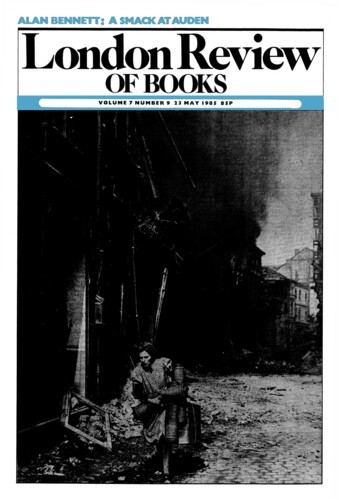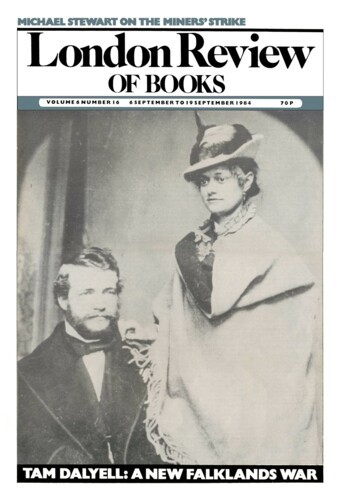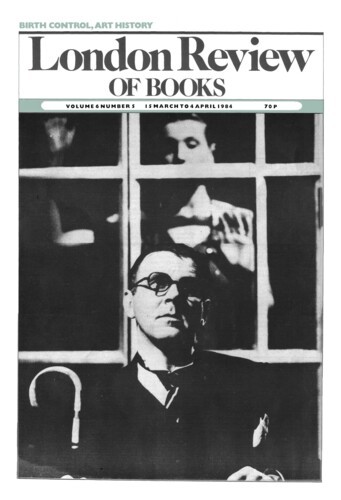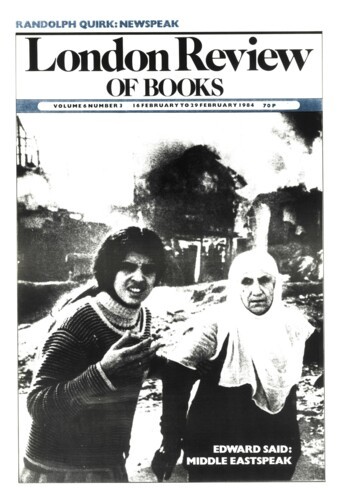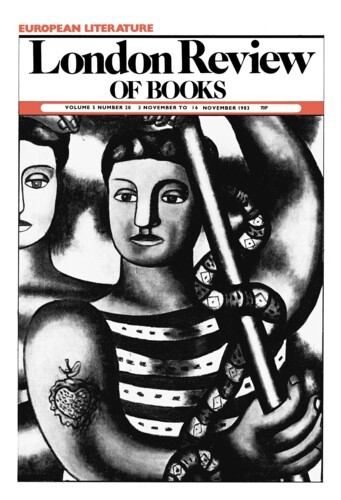All Woman
Michael Mason, 23 May 1985
One may ask of Ms Ford’s book, rather as Alice asks of the White Knight’s poem: ‘What is it called?’ The title on the jacket is ‘Men’; the title on the title-page is Men. The jacket is the part of a book where publishers most candidly make known their views. Publishing contracts specifically reserve to the publisher the right to determine its appearance, unilaterally if necessary. Everything about the jacket of ‘Men’ or Men suggests that what Weidenfeld and Nicolson favour about this book – that is, what they find commercially promising – is its author rather than her text. It is not just that Ms Ford is given great emphasis in the bled-off photograph of her that fills the back cover: the jacket strives to personalise the text inside, implying it to be interesting only, or chiefly, because of who wrote it. The background is pure white, the lettering scarlet and black. Not the expected livery for a book subtitled ‘A Documentary’ (but, as it happens, exactly the jacket colours of a recent mass-paperback humorous compilation by a woman about men). That subtitle does make its way onto the jacket (insofar as authors compose titles, there is a limit to the publisher’s power to drive the appearance of a book and its content apart). But the MEN above it dominates in letters more than six times taller – and then those inverted commas are sneaked in to discredit further the suggestion of objectivity or factuality which the subtitle might regrettably have carried. The reduction of Anna Ford to the thinking man’s Jackie Collins is complete.’
